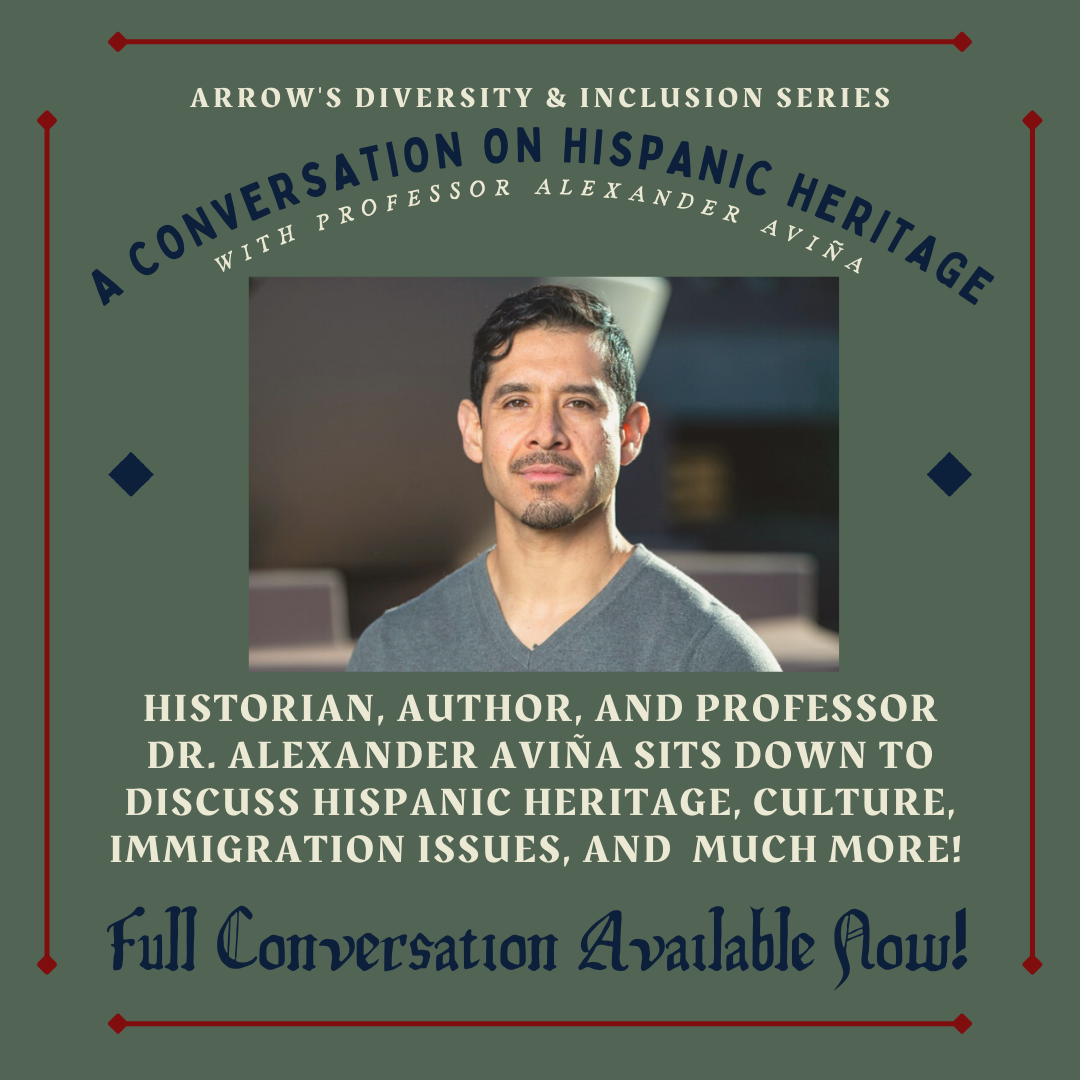
September 15, 2023
Associate Professor at Arizona State University Alex Aviña wasn’t surprised when we reached out to him to talk about Hispanic Heritage Month (September 15 – October 15). Every September, his inbox is flooded with similar requests. On the other side, when Arrow resident Conchita Colopy was given the information about the conversation, it was the first she’d heard of the celebration. They both agree it’s challenging to discuss “Hispanic Heritage” when the word “Hispanic” is basically meaningless (more on that in the next paragraph). The conversation was wide-ranging, touching on language, religion, colonization, immigration, and more.
Colopy remembers when the word “Hispanic” first started appearing in newspapers and wondering who, exactly, it was supposed to signify. So many races, religions, and traditions influence the culture we call “Hispanic.” It’s an umbrella term that was created for use in census reporting and flattens a vast heterogeneity into one category. That is where Aviña would like the conversation to start, by unpacking that word and understanding its use and its limitations. “It’s good to keep broadening these terms, and to let people identify how they want to identify themselves,” Aviña says.
Amid all the different influences that make up “Hispanic” culture, Colopy believes “It’s the language that holds us together.” Born and raised in Costa Rica, Colopy finds a richness of experience and description that just can’t be replicated in English. Living in Akron, she now has to seek out people with whom to speak Spanish. When she does, “It’s just like eating candy,” she says. And reading! “There’s such a vivid and strong strain of literary production” in the Spanish language. Aviña recommended the novels of Isabel Allende, The Lost Children Archive by Valeria Luiselli, and the poetry of Gabriela Mistral.
Aviña spoke about the history of Spanish language in the US (it’s been around for a long time: The Spanish city of Santa Fe, for example, was founded in 1610) and the way it and religion were tools of Spanish colonizers. Spanish Catholicism blended with indigenous folk tradition, which we can see in the extremely syncretic Mexican Catholicism. For further reading on the history of Spanish language in the US, he recommended Rosina Lozano’s An American Language.
The best way to celebrate Hispanic Heritage Month is to learn about the long history of Hispanic peoples in America and why they are here, particularly the more recent arrivals. They are not here to take jobs or “reconquer the Southwest,” as some claim. Many sacrificed their lives serving in the military to protect this country. Colopy mentions the huge number of Puerto Ricans who volunteered for the First World War and the large number of Spanish surnames to be seen on the Vietnam Veterans Memorial.
Appreciating the story of immigrants is personal to Aviña, whose parents originally came from Mexico without papers in the 70s. Like many immigrants, they came for economic opportunity, a dignified life, progress, and education. It is important to humanize the stories of immigrants and to understand what they are fleeing and why they are forced to flee. For an amazing, accessible history of Latinos in America, Aviña recommends Juan González’s The Harvest of Empire.
For the full conversation, click here.
Saint Charles, Missouri-based Arrow Senior Living manages a portfolio of communities that offer varying levels of care, including independent living, assisted living, and memory care. Each and every senior living community supports residents by focusing on dignity, respect, and quality of life. The programs and amenities offered are selected to provide only the highest standard of quality and comfort.
Find an Arrow community near you
Work at Arrow Senior Living
Arrow Senior Living Management serves and employs individuals of all faiths, regardless of race, color, gender, sexual orientation, national origin, age or handicap, except as limited by state and federal law.